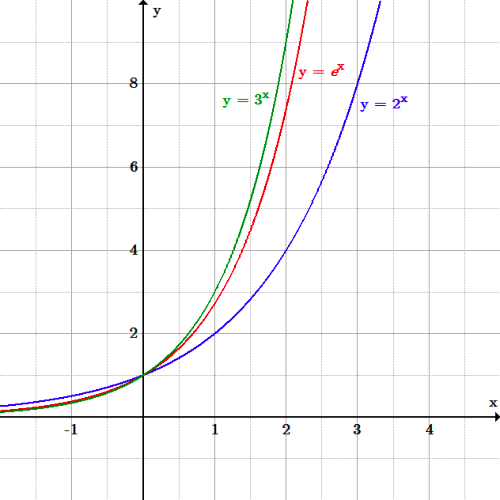Question
Question: Prove that exponential function \({e^x}\) is an increasing function....
Prove that exponential function ex is an increasing function.
Solution
Here interval is not given so we will prove that ex is strictly increasing function in its own domain.
Complete step-by-step answer :
Let f(x) is a function having Df as its domain. Range of exponential function is from (0,∞).
f(x)=ex ∴Df∈R
Now differentiating f(x) with respect to x
f′(x)=ex
Three cases arises x>0,x=0,x<0
Case 1. When x>0
f′(x)=ex=1+1!x+2!x2+3!x3+....... Binomial expansion of exponential function ex > 0
Here we get that the overall function is greater than zero.
Case 2. When x=0
∴f′(x)=ex=1>0 Putting value of x=0 we get a function equal to 1 which again is greater than zero.
Case 3. When x<0
∴f′(x)=ex=e−x=ex1 = 1a positive quantity >0
Taking negative quantity and reciprocating it we will get positive quantity in denominator which is greater than zero.
In all the three cases we found out that f′(x)=ex>0
∴ The function ex is increasing.
Note: The word exponential has mathematical meaning which says extending in a natural way. It is a monotonically increasing function. A monotonous function is a function in which x increases for all real values .The exponential function is one of the most important functions in mathematics somewhat lower than that of a linear function. Exponential functions provide simplest solutions to the dynamic systems. They can be related to a growth or decay of a process of a system over s period of time.
Alternative approach to this question is the Graphical method. In this we can see that function is increasing.
Putting x=0, in function y=ex we will get y=1 and by putting x=1we will get y=e which will be approximately equal to 2.718

We can see that in the graph the function is increasing to infinity.
